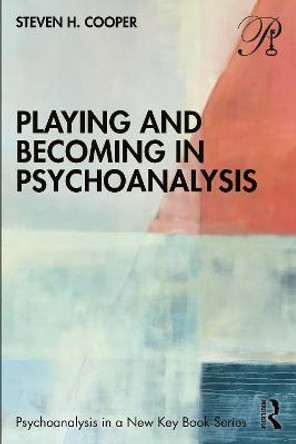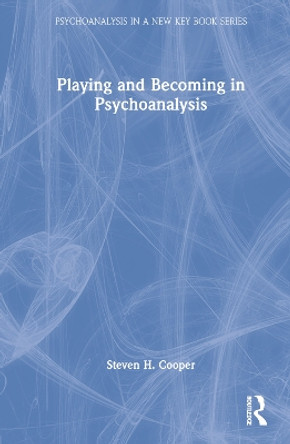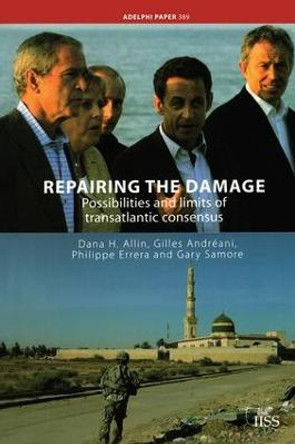Description
Despite the importance of the concept of hope in human affairs, psychoanalysts have long had difficulty accepting responsibility for the manner in which their various interpretive orientations and explanations of therapeutic action express their own hopes for their patients. In Objects of Hope: Exploring Possibility and Limit in Psychoanalysis, Steven Cooper remedies this longstanding lacuna in the literature, and, in the process, provides a thorough comparative analysis of contemporary psychoanalytic models with respect to issues of hope and hopefulness.
Cooper's task is challenging, given that the most hopeful aspects of human growth frequently entail acceptance of the destructive elements of our inner lives. The analysis of hope, then, implicates what Cooper sees as a central dialectic tension in psychoanalysis: that between psychic possibility and psychic limit. He argues that analysts have historically had difficulty integrating the concept of limit into a treatment modality so dedicated to the creation and augmentation of psychic possibility. And yet, it is only by accepting the realm of limit as a necessary counterpoise to the realm of possibility and clinically embracing the tension between the two realms that analysts can further their understanding of therapeutic process in the interest of better treatment outcomes.
Cooper persuasively demonstrates how each psychoanalytic theory provides its own logic of hope; this logic, in turn, translates into a distinctive sense of what the analyst may hope for the patient, and what the patient is encouraged to hope for himself or herself. Objects of Hope brings ranging scholarship and refreshing candor to bear on the knotty issue of what can and cannot be achieved in the course of psychoanalytic therapy. It will be valued not only as an exemplary exercise in comparative psychoanalysis, but also as a thoughtful, original effort to place the vital issue of hope at the center of clinical concern.
About the Author
Steven H. Cooper, Ph.D., is a training and supervising analyst at the Boston Psychoanalytic Society and Institute, a faculty member and supervising analyst at the Massachusetts Institute for Psychoanalysis, and Clinical Associate Professor of Psychology at Beth Israel Hospital, Harvard Medical School. The author of numerous psychoanalytic papers, Dr. Cooper has served on the editorial board of the Journal of the American Psychoanalytic Association and is currently on the editorial board of the International Journal of Psycho-Analysis. He is in private practice in Cambridge, MA.
Reviews
"Steven Cooper's Objects of Hope is at once an exhilarating tour de force of comparative psychoanalytic theorizing and a lucid and highly nuanced account of the clinical implications of contemporary Freudian, British object relations, and American relational perspectives. Rich with extended clinical accounts that come alive in Cooper's vivid and engaging style, this book bears witness to each patient's struggle to create new meaning and experience out of the stultifying repetitiveness of past traumas. Both the exciting potentials and the frustrating difficulties of psychoanalytic work are explored with forthrightness and painful honesty. Although Objects of Hope will be stimulating and edifying for clinicians at all levels of experience, Cooper's clarity and incisiveness as a writer and thinker will make this book an invaluable teaching tool for generations of new students."
- Jody Messler Davies, Ph.D., Co-Editor, Psychoanalytic Dialogues
"Hope, an essential but usually neglected aspect of analytic theory and process, is the topic of this highly original volume by Steven Cooper (no relation). Through the lens of hope, he develops new perspectives on the broad range of technical and theoretical differences among contemporary psychoanalysts. Many detailed clinical examples and a refreshingly candid writing style speak directly to the daily vicissitudes of analytic practice. Most of us are likely to revise some of our analytic ideas and modify some of our techniques after reading this book."
- Arnold Cooper, M.D., Professor Emeritus, Weill Medical College, Cornell
"Cooper's comparative-theory approach to the topic of hope and limitation is interesting and refreshing to anyone frustrated with the fierce fragmentation and insularity of the contemporary psychoanalytic scene. His approach also draws out some aspects of the topic in a more comprehensive way than is possible by looking at hope and limitation through the lens of a single perspective alone...a fruitful and much needed inquiry into how beliefs and values inevitably influence, and even saturate, our clincal and theoretical work."
- Jennifer McCarroll, JAPA
"This is a book that should appeal to all dynamically oriented therapists in its scholarly exposition of American relational theory and its comparison to other theories. It can also be recommended to training institutions and will offer to the established therapist though-provoking questions abot his or her own theoretical orientation."
- Thomas Lynch, M.D., Journal of Nervous and Mental Disease
"[A] rich and nuanced account of how hope enters into psychoanalytic work for both patient and analyst...Cooper's nuanced account of differences among the psychoanalytic schools upon which he draws - contemporary Freudian, Britich object relations, and American relational psychoanalysis - highlights how each leading contemporary explanation of therapeutic action implicitly conveys somewhat differing hope for the patient."
- Ernest Wallwork, Religious Studies Review
Book Information
ISBN 9781138005389
Author Steven H. Cooper
Format Paperback
Page Count 322
Imprint Routledge
Publisher Taylor & Francis Ltd
Weight(grams) 498g









